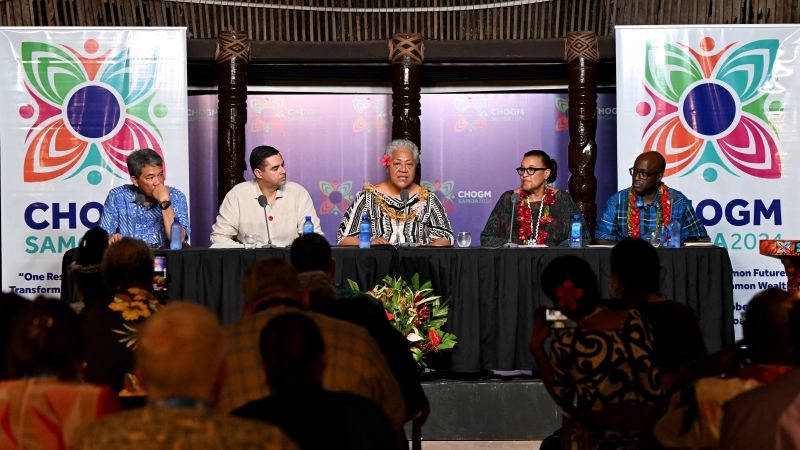In the past decade, the dialogue surrounding reparations for slavery within the Commonwealth has progressively intensified. Recently, Commonwealth leaders have voiced an increase in support, declaring that the time has come for robust discussions on reparations due to the UK’s historic involvement in the Trans Atlantic Slave Trade.
It’s praiseworthy that these heads of nations are taking a strong stance on this sensitive issue. The concept of reparations is centred on two objectives: acknowledgment of the moral harm caused by the slave trade and a commitment to repair materially the consequences of this legacy. The dialogue raises awareness about the lingering impacts of historical injustices suffered by people of African descent and the need for addressing them meaningfully.
The world saw the United Kingdom as a key player in the proliferation of the slave trade between the 16th and 19th century. The British Empire transported millions of Africans to the New World as enslaved people and profited immensely from it.
In recent meetings, Commonwealth leaders have articulated their viewpoint on how the past injustices have had lasting impacts in their respective countries. They argued that the UK’s legacy of slavery has resulted in systemic disadvantages for African descendants throughout the Commonwealth, many of whom live in predominantly Black nations. These systemic disadvantages include symbolic and structural racism, socioeconomic disparities, lack of access to education, health disparities, and challenges tied to cultural identity.
These leaders are seeking more than just an apology. They envision reparations as a mechanism to address the ongoing socio-economic consequences of the slave trade. This could take on many forms including financial compensation, educational programmes, infrastructure development, debt cancellation, and policies aimed at economic empowerment, which would assist in eradicating the socio-economic imbalances currently faced by the descendants of the enslaved.
However, the issue of reparations is complex and challenging. There are questions around how to calculate an appropriate amount for reparations, who will pay them, and who will receive them. Critics argue that slavery was a common practice globally at the time, with many nations and cultures involved, making it difficult to assign responsibility to a single nation.
Yet, it is clear that heads of nations within the Commonwealth are advocating for the UK to take tangible steps to address the sustained impacts of its involvement in the slave trade. They encourage the UK, among other nations, to engage in clear discussions about reparations and to follow through with actions demonstrating their commitment to acknowledging and correcting past wrongs.
Several Commonwealth countries have already begun counteracting the effects of historical injustices on their own. They have implemented policies aimed at socially and economically empowering the descendants of enslaved individuals, promoting educational opportunities and advancing economic initiatives that promote equal opportunities.
The renewed call by Commonwealth leaders for the UK to grapple with its role in the Atlantic Slave Trade suggests that the discourse about reparations will persist in the forthcoming years. It will continue to shape the evolving dynamic between the United Kingdom and the Commonwealth nations, and hopefully, it will lead to reparative and restorative outcomes that acknowledge the past while looking forward to a future of reconciliation and equality.




